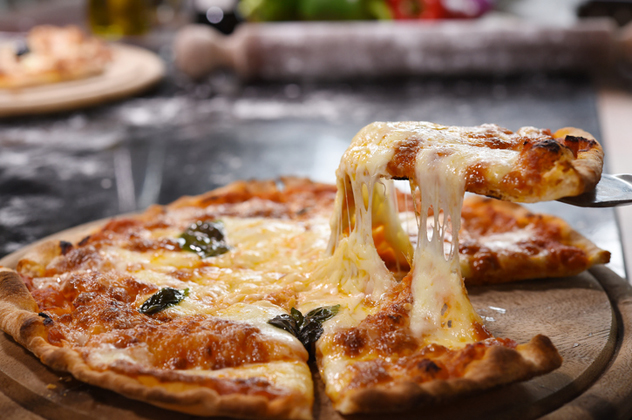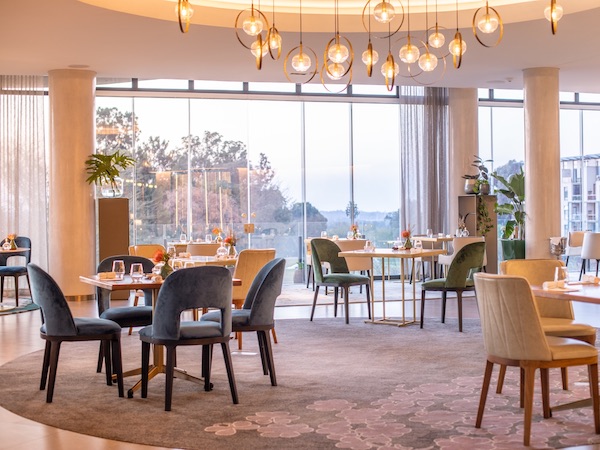News
9 top tips for surviving the winter as a restaurant
Friday, May 20th, 2016
As the mercury drops, even the most serious foodies can be found eating takeaways on the couch, watching Game of Thrones. But does the change in weather also signal a change in restaurant trade?
“There is definitely a difference,” says Roscoe Sanders from Ryan’s Kitchen in Franschhoek. He notices that covers as well as average spend per head is down in the winter months. At Spiga in Durban, Jadan McCullough says trading starts a bit later and ends a little earlier in the day.
But it’s not bad news for everyone: “We find that we are actually busier especially during the week, in winter,” says Marijke Duminy, co-owner and head chef at Four & Twenty Café in Wynberg. “I am not sure why, to be frank, but perhaps more passers by are tempted to pop into a cosy coffee shop to warm up.” (Though they do find the morning starts a little later, however.)
So what are the best ways to stay afloat during the quiet months? Here are 9 tips for surviving the winter.
1. Speak to your customers
“We find that what works is to respond and be sensitive to even the most subtle changes in your unique customer base, and not be afraid to try new things until something really stands out that people appreciate,” says Marijke. It sounds simple, but she recommends talking to the customers that still visit in winter and asking them what they would like to see on the menu. That way, not only do you discover what people really want, but also build loyalty.

“Winter is coming,” said Jon. “We should fortify our armies with carbs.”
2. Tweak the menu
Durban’s winters may be very mild, but even there, diners are looking for a slightly different offering come winter. “We sell a lot more red wine and a lot more heavy, cream-based sauces,” says Jaden of Spiga’s winter trade. That can be hard to organise, if sushi, for instance, is your forte – but perhaps stock up on that red wine.
3. Offer a winter special
But make sure you’re not setting yourself up for failure. Loss leaders can be a great way to garner attention – just look at the queues when fast food joints offer free breakfast – but they can also be a curse, if you’re not able to cope with demand, and can’t convert those people into return customers. Also make sure you market the special properly on social media – and tell Eat Out about it too, so we can add it to our extremely popular winter specials guide. Specials are not for everyone, though. Roscoe says that specials have never really worked for them at Ryan’s Kitchen. Instead, they open on specific Sundays during the winter for an all-inclusive lunch.

Jessica was going to stay home that night, but her cheese levels were critically low, so she forced herself out to a restaurant.
4. Give the diner something they can’t get at home
Thanks to the pressure of piracy, cinemas are pulling out all the stops to give movie-goers a unique experience, with special lounge seating, food and 3D movies. Home cooking isn’t exactly piracy – but the same principle applies for restaurants. At Geet in Brooklyn, restaurateur Gita Jivan says she tries to give people a full experience by offering them different settings to dine in, such as sitting on the floor on luxury cushions. She’s also offering whisky pairings, wine pairings, and an opportunity for diners to cook with her and taste brand-new dishes.
5. Offer takeaways and deliveries
Sometimes it’s easier to work with existing consumer behaviour (namely, watching Game of Thrones on the couch) than to change it. Offering deliveries could give your bottom line a much-needed lift.

Banquets were significantly downscaled in winter months and the kitchens at Winterfell stocked up with takeaway packaging.
6. Consider organising an event with neighbouring restaurants
“The festivals definitely help bring more business to our valley during the winter,” says Roscoe from Ryan’s Kitchen in Franschhoek. If you’re part of an area with an existing marketing body, find out how you can get involved in existing festivals. If there’s no such body, consider how you can team up with some restaurants in your immediate vicinity. You may well find you’ll be able to entice more diners to your road if you work together.
7. Find new markets
At Geet in Pretoria, Gita offers menus for vegetarians, vegans and those who are intolerant to certain foods. She’s also noticed diners looking for WiFi and wanting a cosy space to work on their laptops, or have meetings. There’s no need to be all things to all people – but looking beyond your core audience could help to increase turnover. Especially for a group that is under-catered for currently in your area.

One entrepreneurial spirit found a new market amongst the under-catered for wildlings.
8. Build a base of regulars
“Try to keep a consistently good product, and offer an exciting meal,” says Roscoe. After all, winter trade is all about regulars and locals. As the amount of foot traffic decreases, enticing visitors back becomes exponentially more important.
9. Take stock
And lastly, enjoy the time to breathe. “We also take full advantage of slower days, scrutinising every aspect of the restaurant (service, food, maintenance etc.) and tweaking small things that may have been missed when we are run off our feet,” says Marijke from Four & Twenty. “It’s a wonderful opportunity to regroup and really focus again on where we want to be and what we want to have achieved by next winter!”












